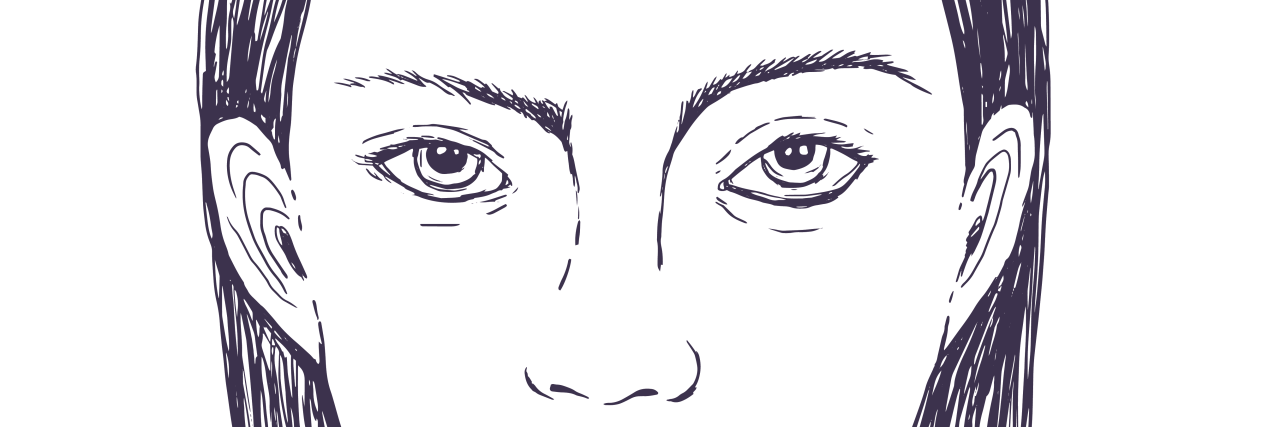Have you ever felt like you’re living in a dream, feel numb and can’t quite focus on objects, conversations and people? Almost like you haven’t woken from the temporary groggy state that happens after hitting the snooze button on your alarm?
If you have a history with anxiety, trauma, depression or stress, there’s a chance you’re struggling with a type of dissociative behavior, such as derealization or depersonalization.
What are depersonalization (DP) and derealization (DR)?
Neither are life-threatening but are the body’s natural defense and coping mechanisms when your capacity to manage stressful situations has been reached. It’s the mind’s way of saying “time out,” and it places a protective blanket around itself by way of a filter between you and the rest of the world.
There is a slight difference between derealisation and depersonalization:
Derealization is a feeling of being detached from one’s surroundings, for example: by navigating the world in a groggy, zombie-like state from behind a glass screen.
Depersonalization goes one step further, where a person may feel detached to their own body and mental processes, watching their life as an outside observer.
Dissociation isn’t the same as psychosis and is usually a temporary state that will pass as your levels of adrenaline lower and your dopamine rises. During this time it can be good to stay away from triggers (caffeine, highly stimulating or chaotic environments) as the body’s nervous system will calm down quickly if it’s given the chance to rest.
Having experienced derealization myself, I know how debilitating, frustrating and scary it can be. I find it’s often worse when I wake up, when my body is still closest to its comfortable and dream-like state. Sleep envelops me and I can’t concentrate or process text, speech or information until it passes. It’s like living in autopilot under a sedative for a few hours. Some other symptoms may include:
1. Visual disturbance and sensory overload. I once read the example of sitting in the front row of a cinema. While you can see all the action, the intensity of the images is overwhelming, and you can’t quite process everything that is going on. You’re constantly moving your head to try and take things in, but it’s challenging and tiring. Added to this, the sounds from the movie may become background noise as you are unable to process everything at once. This is why day-to-day life can become problematic during an episode of DP or DR. Much like when you’ve had a few too many glasses of wine, it becomes very difficult to fully engage or focus in conversation due to the other external distractions (noise, sound, loss of body sensation).
2. Feeling numb and weak. While living in a dream-like state, it might be that you lose feelings of sensation. Sometimes that simple act of clenching my hand into a first can be a strange feeling and like it’s happening in slow motion. I seem more acclimatized to pain, as if those sensors have been numbed. Pinching myself can help with bringing myself back into the moment, but there seems to be more of a delay than usual between the act and sensing discomfort.
3. Drowsiness, feeling groggy and spaced-out. This is the main and most disruptive symptom. Patience and acceptance are key during this phase. Even after nine hours of sleep, I feel less refreshed than before going to bed. Physically, the body is rested, but the mind can make you think you’re completely exhausted. My heart rate tends to slow down a little during this time and it’s important not to do too much exercise or rushing around as that
can lead to feelings of dizziness.
So what can be done about it?
While there is no quick fix, it’s important to remind yourself that you are safe. The more you fight against periods of disassociation, panic can set in and you are more likely to reinforce the cycle of anxiety that leads to this acute state of hyper-alertness and the dissociative state. Instead, see it as something such as hay fever. You know it will pass, and there’s not much you can achieve by constantly thinking about it, so try to live out your day as best you can by doing small, manageable tasks. You might not produce your best work or be as sociable and fun to be around, but that’s OK. You’re OK and you will be OK. Remember that.
If you wear glasses, it might be helpful to take them off for a little while. I find myself feeling dizzier and overwhelmed by visual stimulus when I can see a divide between good sight and poor vision when I glance outside the frames of my glasses. Wearing contact lenses or having poor vision for a while can help to make things more balanced.
Mindfulness activities can also help. Look at the nearest object in the room. If it’s a flask of water, notice the color of the bottle and where it catches the light. Notice any patterns or the markings on the lid. You could also focus your attention to your feet on the floor, or your hands on the side of the desk. These grounding exercises are good for focusing your attention to the here and now.
Ultimately, you must remember this: disassociation is often a natural coping mechanism that your body enters when it perceives danger or excessive amounts of stress. It takes time for your body to dehabitualize some of its previous coping strategies. Therapy, self-help and lifestyle changes can help looking ahead. Uncovering some of your anxiety triggers will also help.
We want to hear your story. Become a Mighty contributor here.
Getty image via Good_Studio

